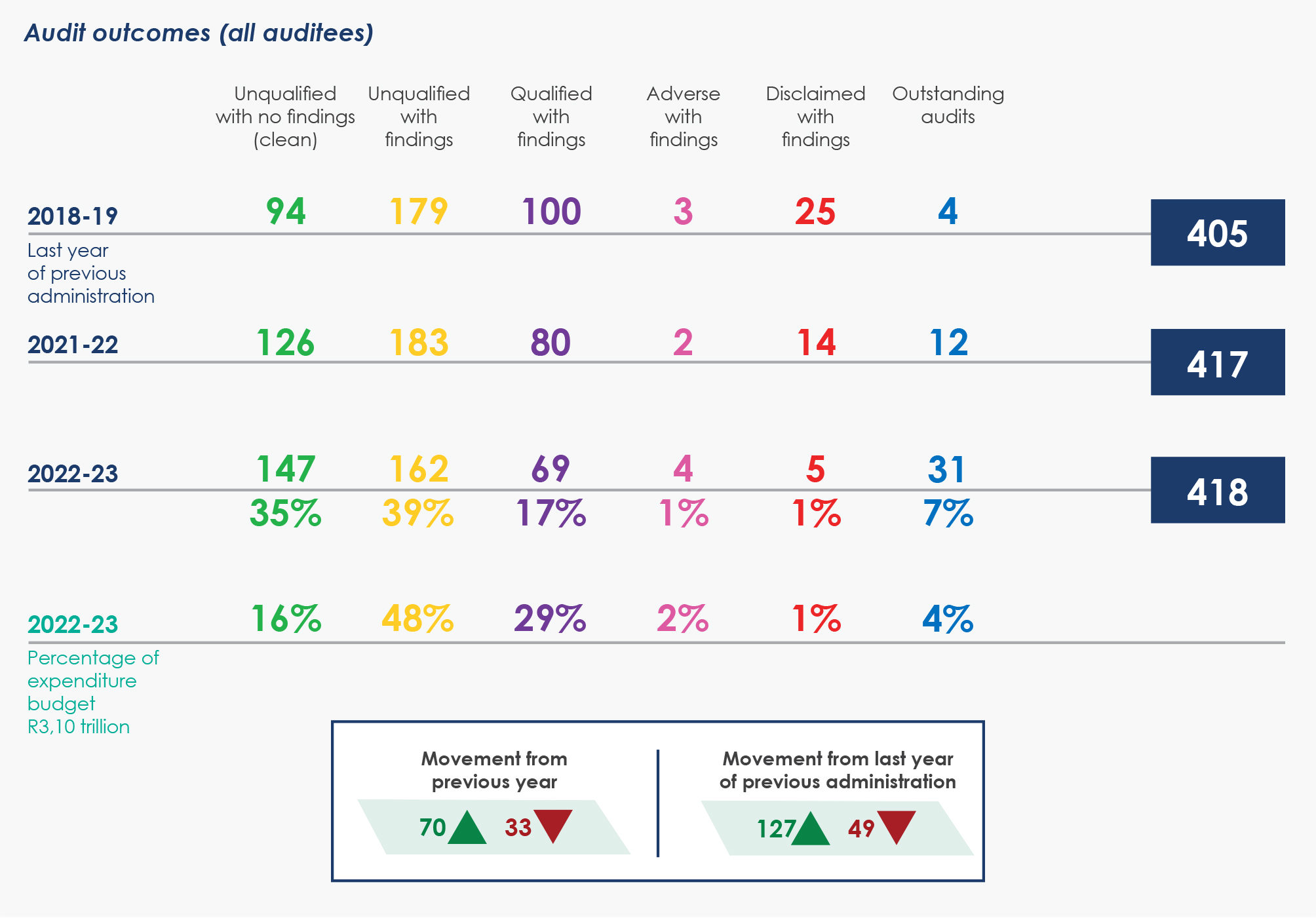Will it ever be a government by the people, for the people?
Will it ever be a government by the people, for the people?
South Africa’s democracy was built on the promise of transparency, accountability, and public participation. Former President Nelson Mandela’s words during the adoption of the Constitution in 1996 echoed this hope for a government that truly serves its people. Yet, decades later, we are left to ask: “Is this promise being fulfilled?” SHARMINI NAIDOO takes a deep dive into the role of public participation in governance, exploring its successes, its shortcomings, and the real-world impact on South Africans.
“… you, the representatives of the people, had decided that open and accountable government will be reinforced by cooperative governance among all tiers. And thus, we strike out along a new road, in which the preoccupation of elected representatives, at all levels of government, will be how to cooperate in the service of the people, rather than competing for power which otherwise belongs not to us, but to the people.
“We were therefore able, in the national interest, to locate governing powers at the level where they appropriately belong and to ensure the national parliament is not an exclusive preserve of an imaginary national politician, but the workplace in which representatives from all levels can pursue their mandate.
“Through the Council of Provinces, the improvement of the status of local government, and the style of governance based on transparency, participation, and consultation, we shall ensure that democracy indeed constitutes government by the people, for the people.”
- Extract from President Nelson Mandela’s address on the adoption of a new Constitution, Cape Town, 8 May 1996
These words from former President Mandela heralded a proud moment for South Africa – and every word was well intentioned, aimed to ensure the necessary governance was put into place so our young democracy could thrive.
Public participation is supposed to be a vital part of the South African democratic government system and is a key principle in the Constitution. It is a process that involves the public in decision-making, and is intended to ensure that the government responds to the needs of the people.
The Public Participation Framework defines public participation as the process by which Parliament and provincial legislatures consult with the people and interested or affected individuals, organisations, and government entities before making a decision. Public participation is supposed to be a two-way communication and collaborative problem-solving mechanism, with the goal of achieving representative and more acceptable decisions.
The Constitutional Court upheld this when the Environmental Management Laws Amendment Bill (the Bill) was amended long after the period for public comment on the Bill ended and made the following ruling:
“… parties interested in legislation should feel that they have been given a real opportunity to have their say, that they are taken seriously as citizens and that their views matter and will receive due consideration at the moments when they could possibly influence decisions in a meaningful fashion.”
- Constitutional Court in the matter of South African Iron and Steel Institute and Others v Speaker of the National Assembly and Others (CCT 240/22) [2023] ZACC 18.
Limited stakeholder input
Sadly, there have been many instances where this does not happen in practice. SABOA has repeatedly commented on various pieces of legislation – Integrated Fare Ticketing and the SANRAL ABT System, The Economic Regulation of Transport Act, The National Land Transport Amendment Act, and the Draft Public Transport Subsidy Bill, to name just a few – because these processes were exhausted and little consideration was given to stakeholder input.
Section 33 of the Local Government: Municipal Finance Management Act, 2003 (Act 56, 2003) requires that municipalities invite public comment and provide background information from the local community and affected parties or persons when a contract or agreement is expected to last more than three financial years. This is a way to ensure public participation in the local government decision-making process.
The 12-year contract Bus Operating Company Agreement with the City of Tshwane (BOCA 1) was set to commence on 1 October this year. Following comments from the public participation process and the Municipal Council, however, some issues are currently being renegotiated.
The BOCA 1 includes routes from Wonderboom to Pretoria CBD, Pretoria CBD to Hatfield, Hatfield to Menlyn, Menlyn to Denneboom, Denneboom to Ikageng, and Pretoria CBD to Atteridgeville and Mamelodi. The affectedness of bus operators along these routes is yet to be determined. We are hopeful that a stakeholder engagement scheduled with parties will enable the finalisation of the Memorandum of Understanding with the City, so that the terms of reference for the survey to determine the affectedness of the bus industry can be finalised.
A key mechanism in the Constitution to ensure governance is the Public Finance Management Act (PFMA). The aim is to regulate financial management in the national and provincial governments to ensure that:
- All government revenue, expenditure, assets, and liabilities are managed efficiently and effectively.
- The responsibilities of persons entrusted with financial management in government are provided for.
- Public sector managers are accountable.
- Quality information is provided in a timely manner.
- Waste and corruption in the use of public assets are eliminated.
The PFMA also requires that the auditor general (AG) audit every government department and public entity in the country according to its guidelines and principles. Although the AG reports indicated improvements for the 2022-2023 year, the reports are nonetheless quite alarming.
Below are the audit outcomes, extracted from the Consolidated Report on National and Provincial Outcomes.

On a provincial basis, the situation is more shocking. For example, according to the “AG Report – SCOPA Briefing: Gauteng PFMA Audit Outcomes 2022/23”, Gauteng irregular expenditure amounted to R5.7 billion and R7 billion during 2022-2023 and 2021-2022 respectively, with R2.3 billion and R2.5 billion respectively relating to the Department of Roads and Transport (DRT). The main cause of the irregular expenditure was non-compliance with the supply chain management prescripts of R5.7 billion.
Reported fruitless and wasteful expenditure (FWE), meanwhile, was R105 million and R373 million during 2022-2023 and 2021-2022 respectively, with the DRT incurring FWE of R2.5 million and R284.5 million respectively. The main cause of FWE was interest, charges, duplicate payments, and expenditure incurred as a result of litigations amounting to R105 million.
While we are extremely glad that this type of information is being shared with the public, the question of accountability arises. We are yet to see what type of accountability is in place to hold the individuals and institutions entrusted with managing public assets and funds accountable.
Accountability? What accountability?
In recent discussions with the Gauteng DRT regarding the reduction of temporary services of up to 40% for some of the operators, SABOA was advised that there is no funding. The department would have the industry believe that making funding available to honour these contracts would mean contravening the PFMA, yet at the time of concluding these contracts, operators were assured that an affordability analysis had been conducted. So, the question remains – what accountability will there be and, more importantly, where does this leave the commuter who would have made use of this service?
On the KwaZulu-Natal front, operators are still waiting to hear about the finalisation of the negotiations of the Public Transport Operations Grant (PTOG) contracts that took place prior to elections. The current contracts have been extended to March 2025.
The City of eThekwini has received municipal council approval for the implementation of a Tactical Adjustment Framework (TAF), which will see Phase 1 of the bus rapid transit (BRT) system going live, with PTOG contracts being simultaneously implemented.
The city recently published its Comprehensive Integrated Transport Plan (CITP) 2024-2029 for comment. Affected SABOA members provided detail comment as follows:
- A well-capacitated and politically-supported eThekwini Transport Authority (ETA) is crucial for the eThekwini area.
- The new ITP should reflect progress made in the last five years. An analysis was requested of the previous programmes and strategies to evaluate whether or not progress was made.
- Concerns were raised about the complexity and duration (18 months) of the transitioning period for the devolution of the public transport function to the lowest sphere of government (i.e. ETA).
- The issue of funding raised, and a request was made for the modelling of the viability of the Integrated Rapid Public Transport Network (IRPTN), including realistic passenger numbers.
- The reintroduction of effective and efficient rail systems is crucial for IRPTNs to work – requests were made for progress on the rail network to be shared.
- The impact of the TAF was difficult to quantify as there was insufficient detailed information in the CITP. Data in the plan also seemed outdated (this seems to be a common trend amongst many transport plans and policies).
- Although the CITP focuses on passenger safety, the industry is, for example, increasingly being targeted by people being paid for a bus to enter an operating area despite having valid operating licences. Bribery and extortion, vandalism, intimidation, and threats to the lives of drivers and owners are common practice and remain a serious issue. Operators have requested that the CITP include a strategy to address this menace.
Spotlight on road safety
The festive season – aka “silly season” – is a time of increased risk for accidents and incidents on the roads. SABOA has engaged with the Road Traffic Management Corporation (RTMC) to support its National Road Safety Festive Season Launch. The 46-day campaign, launched by the Minister of Transport, stretches from 1 December to mid-January and intends to raise awareness about road safety. Law enforcement operations on all major routes – led by the RTMC, the South African Police Service, and provincial and municipal traffic authorities – will also be intensified, especially in high-risk zones.
SABOA also attended the Gauteng DRT Road Safety Conference and signed the pledge to uphold and promote a culture of road safety throughout the province and recognise the importance of safe and responsible behaviour on our roads.
SABOA would like to extend the association’s wishes for a safe and wonderful holiday season. Although it has been a difficult and trying year for bus operators, we embrace the possibilities of the new year with open arms, hopes anew for a brighter tomorrow for the industry, and “bus loads” full of optimism.
Published by
Sharmini Naidoo
focusmagsa




